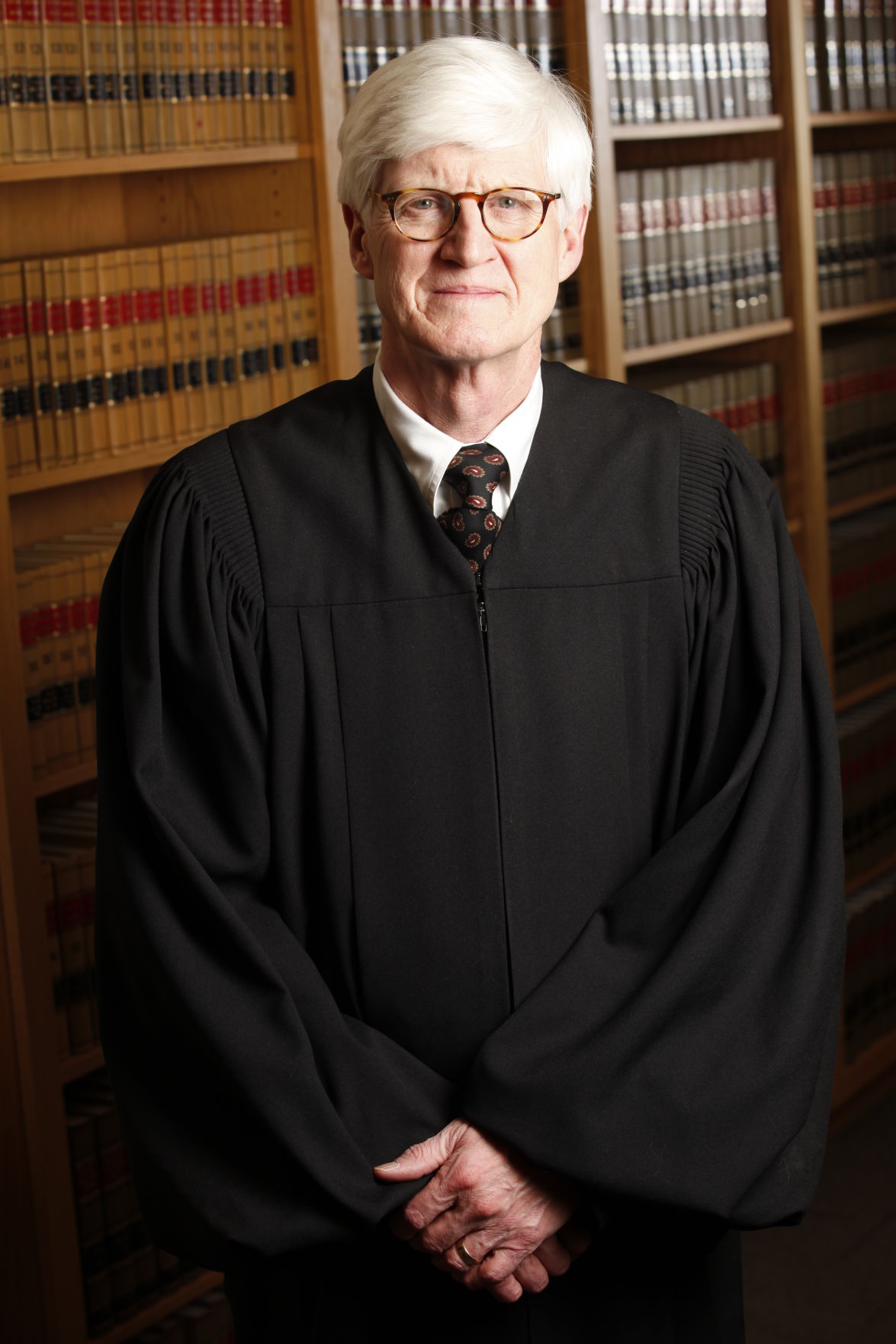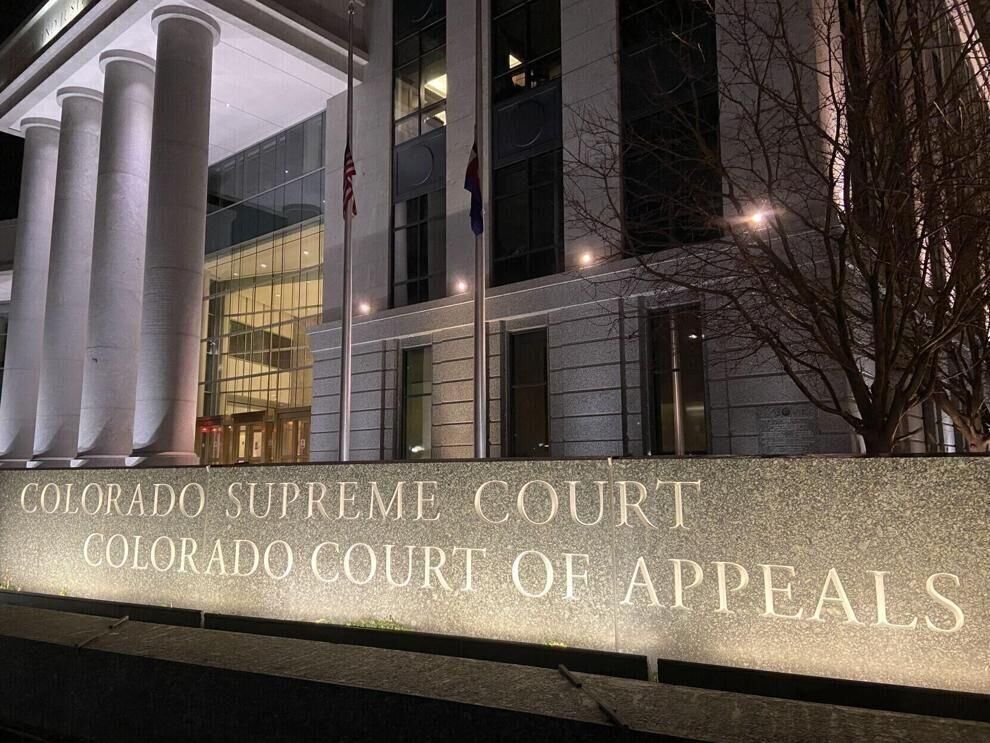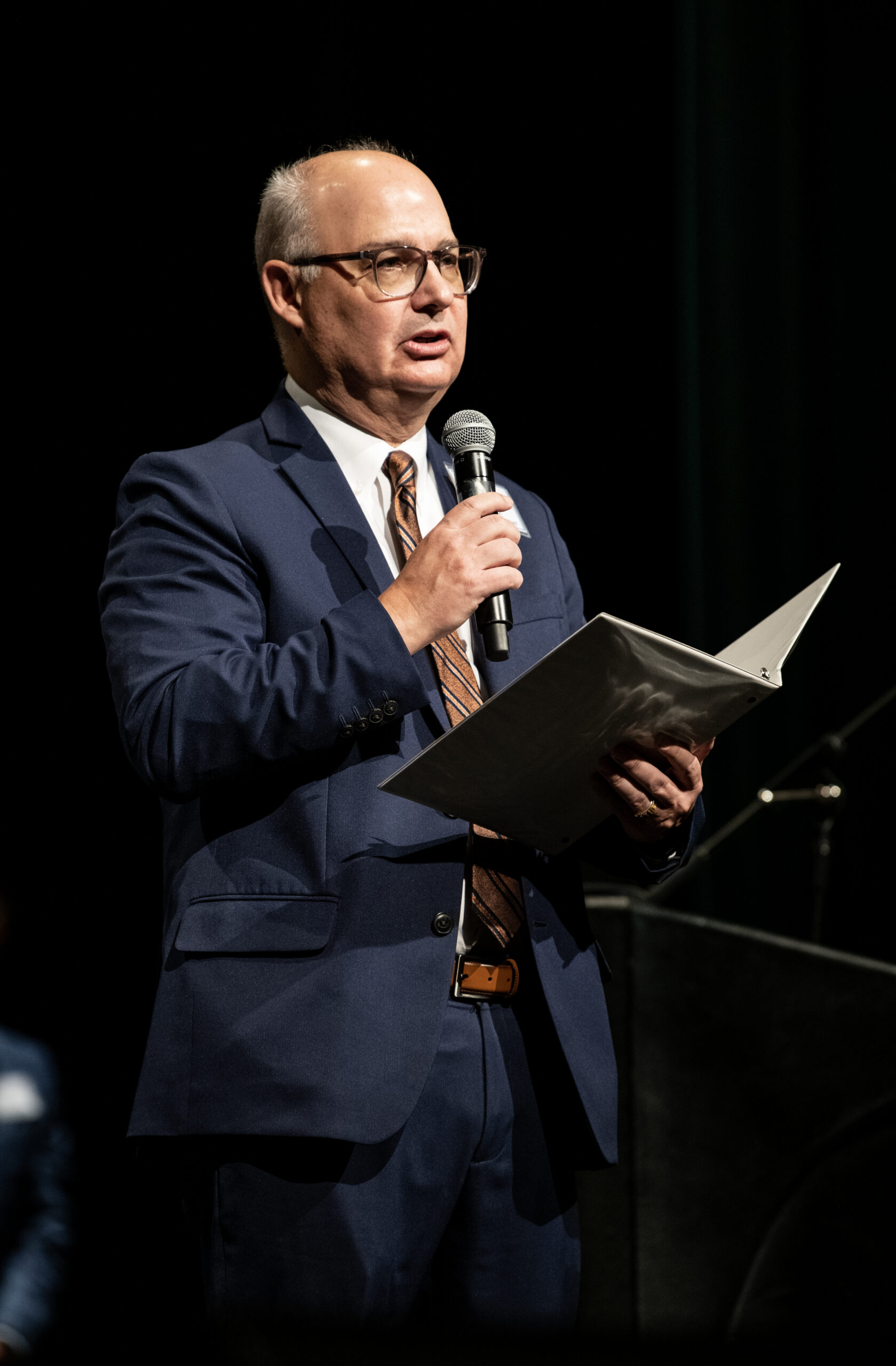Former Colorado chief justice receives unprecedented public censure

Nathan B. Coats, the former chief justice of Colorado, received an unprecedented public censure on Monday for mishandling the award of a contract to a judicial branch employee who was facing termination for her own misconduct.
Coats, who served as chief justice from 2018 through 2020, admitted to violating the Code of Judicial Conduct’s requirement that judges competently and diligently perform their administrative duties. As head of the judicial branch, Coats authorized a multimillion-dollar contract with Mindy Masias, a high-ranking employee at the time, even though there was evidence suggesting Masias had falsified documentation.
Media coverage of the Masias contract and independent investigations highlighted improper behavior from multiple leaders within the Judicial Department during Coats’ tenure. However, even before disciplinary proceedings had concluded, one inquiry found Coats’ lack of training as an administrator, his reliance on an untrustworthy subordinate and his poor judgment were partly to blame for the scandal.
“Chief Justice Coats undermined the public’s confidence in the integrity of the judiciary,” the Aug. 7 disciplinary decision noted. “(C)ompliance with the Colorado Code of Judicial Conduct required that former Chief Justice Coats prevent the Judicial Department from entering the contract prior to its public execution.”
Coats’ public censure came not from his former colleagues on the Supreme Court – who recused themselves in the matter – but from a special tribunal of Court of Appeals judges. The Coats discipline marked the second use of a special tribunal since the Supreme Court enacted the procedure in January, the first occurring in April with the censure of disgraced former Mesa County District Court Judge Lance P. Timbreza.
The members of Coats’ tribunal were Judges David Furman, Anthony J. Navarro, Elizabeth L. Harris, Rebecca R. Freyre, Craig R. Welling, Jaclyn Casey Brown and Christina F. Gomez.
Former Sen. Pete Lee, D-Colorado Springs, acknowledged that while a censure may seem like a light punishment, for an attorney or a judge it is a “big deal.”
“Public humiliation of a guy at that level of esteem is a huge sanction,” said Lee, an attorney himself. “There isn’t anything more Draconian you can do from the standpoint of the legal profession – the esteem of your peers.”
Questionable conduct abounds
Coats, a 2000 appointee of Gov. Bill Owens, left the court nearly three years ago upon reaching the mandatory retirement age. Last summer, former federal prosecutor Robert C. Troyer and former Denver independent monitor Nicholas E. Mitchell issued a report detailing the circumstances of the Masias contract.
In mid-2018, financial services personnel detected that Masias, who was the chief of staff in the State Court Administrator’s Office, included a falsified date on a reimbursement request. The personnel advised Coats and then-State Court Administrator Christopher Ryan to fire Masias, given that state auditors were reviewing the judicial branch’s finances at the time.
Wanting to keep Masias involved with the judiciary, Ryan and Coats discussed letting Masias resign and become a leadership training contractor with the Judicial Department, provided no other misconduct surfaced.
In late 2018, the men began to put the contract in motion. Ryan assured Coats there were no further irregularities with Masias’ reimbursement requests, but the Troyer-Mitchell investigation found that to be untrue.

Human resources director Eric Brown, who the investigation deemed to have an “inappropriately close relationship” with Masias, then helped draft a public solicitation for leadership training that seemed suspiciously tailored to her. Consequently, no entities applied to provide the service. The department proceeded to award a multiyear contract to Masias following her resignation, worth up to $2.75 million.
However, in April 2019, Coats learned that Ryan – with the assistance of Masias and Brown – was involved in further impropriety regarding an ex-employee and that Masias had secretly recorded a conversation with former Chief Justice Nancy Rice. In July, the Supreme Court fired Ryan and terminated Masias’ contract.
The Troyer-Mitchell report blamed Ryan for concealing or misrepresenting critical information, Masias for being dishonest, Brown for putting his personal relationship over the judiciary’s interests, and Coats for being an incompetent manager.
“Coats received no training, orientation, or instruction on running a large, complicated organization like the Department,” the report concluded. “His own intuition also should have told him that choosing a person known for dishonesty and self-interest (Masias) as the face of the Department’s leadership training program would gravely undermine trust and confidence in the Department and his own leadership.”
Lessons learned
Since the turmoil inside the judicial branch became public, Chief Justice Brian D. Boatright, who succeeded Coats in 2021, told lawmakers earlier this year that the judiciary was undertaking the reforms recommended in the Troyer-Mitchell report. At a legal event in May, Boatright explained the court has moved away from the traditional protocol of the chief justice simply relaying administrative decisions to the other six justices without their participation.

“We learned that 14 sets of eyes and ears is much better than having two sets of eyes and ears on any decision,” Boatright said. “If we’d had a number of different eyes and ears on the problems at hand, we would have navigated more smoothly.”
Boatright also indicated that when he rotates out of the chief justice position next summer, his successor will have more preparation time for assuming the top job.
“My onboarding process was, I sat across the table from Chief Justice Coats and he said, ‘What would you like to know?’ And a month later I was chief,” said Boatright.
Lee, the former senator who oversaw efforts to enact judicial reform in the wake of the scandal, applauded the whistleblowers who came forward and the journalism that shone a spotlight on the misconduct.
“I think that the Judicial Department ought to provide access to training in the administrative process and management to these appointed chief judges in all 22 judicial districts,” he said. “They make a lot of decisions – personnel, management, financial, etc. If lawyers don’t have training to do that, let’s get them training.”
Coats’ disciplinary case also featured the unusual involvement of Andrew Rottman, counsel for Coats and now for Boatright. Although Rottman was not a party to the proceedings, he objected to a statement in the narrative offered by the Colorado Commission on Judicial Discipline and by Coats, which claimed Rottman knew of Masias’ clandestine recording of a former chief justice but did not tell Coats.
“That statement is factually untrue and is contradicted by overwhelming evidence to the contrary and the conclusion of every other investigation,” wrote lawyers for Rottman.
Even though Coats had previously signed the document containing the alleged factual error, attorneys for Coats clarified that he now considered the statement to be “factually incorrect.” The judicial discipline commission reissued its narrative on June 16, omitting the reference to Rottman.













